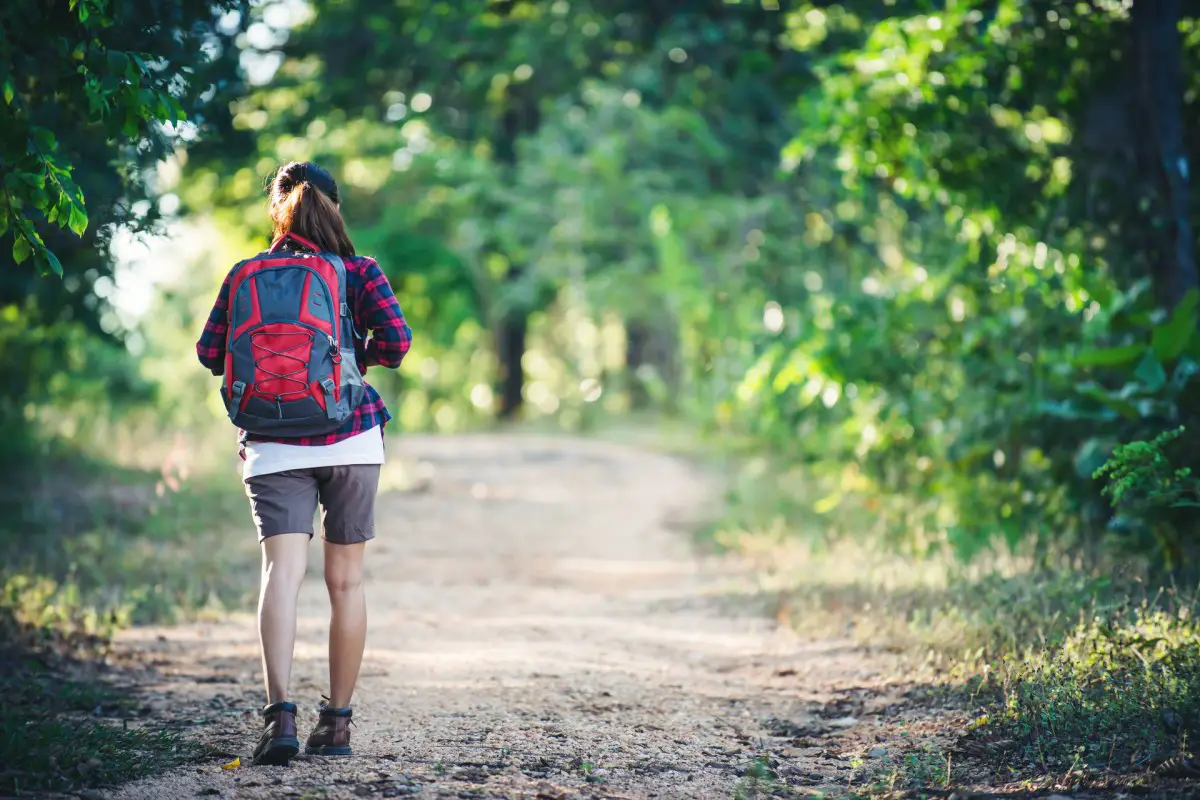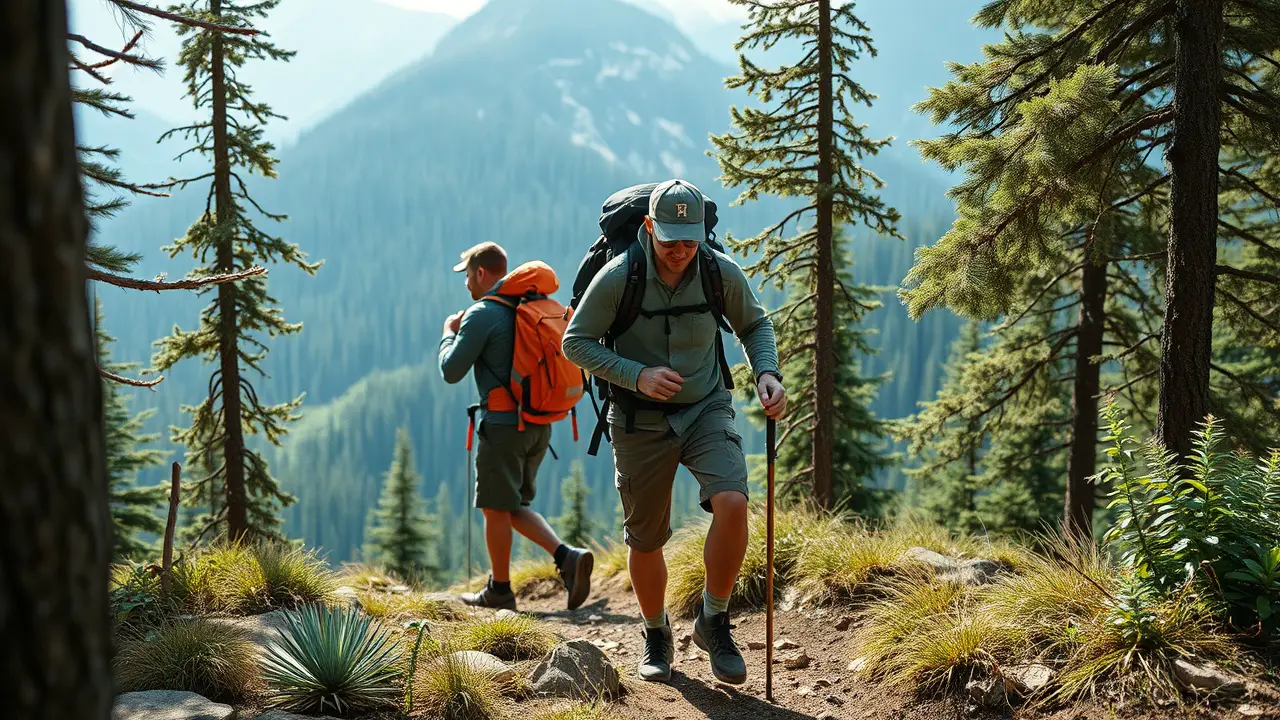How to backpack with eggs? Backpacking is a great way to get out into nature and enjoy the wilderness. It’s also a great excuse to try new recipes, like dehydrated eggs!
If you’re looking for delicious meals that are easy to prepare, then check out these packing tips for backpacking with eggs (which include egg containers).
Some backpackers have significant experience with backpacking, while others are just getting started, which makes this a very interesting topic.
Every year, more and more people enjoy backpacking trips because it’s an easy way to discover new surroundings you wouldn’t be able to see with a conventional vacation.
That being said, why not learn how to backpack with eggs? Although backpacking is about simplicity and roughing it, when you’re camping in the backcountry for a few days, some luxuries just can’t be left behind.
Maybe it’s your precious toothbrush, a post-hike beer, or a carton of eggs you forgot to put in your food storage locker; regardless of what you choose, you’re going to need to know how to keep it safe.
How to backpack with eggs?
Eggs are an amazing and versatile food that can be prepared in dozens of ways. They’re also one of the easiest things to transport since they don’t need to be kept cold or cooked.
The only problem with packing eggs is that they’re fragile, so you’ll need to take some precautions with them if you want them to stay intact. Here are some tips for packing eggs for camping or backpacking:
Use a plastic container. Eggs are best kept in their original carton, but even then, you’ll want to keep them in a plastic container when hiking or camping because eggs can break easily.
You can make one out of an empty yogurt container and duct tape if needed, but just remember that whatever you use must be leak-proof and have a lid!
Make sure they’re clean. Eggs need air circulation around them to keep from spoiling too quickly, so be sure they’re clean before you pack them away. Also check their expiration dates; older eggs tend not to travel well.
Put your eggs in an insulated bag or cooler before putting them in your backpack or tent. This will keep them cool longer and prevent condensation from forming inside your pack (which will ruin anything it touches).
Key points to learn
- Use a backpacking egg container.
- You can use powdered eggs while backpacking.
- Store your eggs in a cooler before backpacking.
- Dehydrate your eggs before backpacking.

Use a backpacking egg container.
A backpacking egg container is a must-have for any backpacker. This guide will show you how to make a backpacking egg container, how to use it, and how to store eggs in the backcountry.
- How to Make a Backpacking Egg Container
- How to Use a Backpacking Egg Container
- How to Pack Eggs in a Backpacking Egg Container
Once you’ve made your own egg container, follow these steps for storage:
Seal your homemade gourd with hot glue or zip ties if using a plastic bottle or jar lid, or an aluminum can or other metal container. Do not use tape! It’s difficult for it to get off without damaging your gourd and leaving residue behind.
You can also use hot glue if you want extra protection from breaking when dropped accidentally on rough terrain like rocks or tree roots, for example.
You may need some time for this step depending on how much hot glue sticks together when applied, so be careful!
Read more articles: Seattle to Yellowstone Road Trip
You can use powdered eggs while backpacking.
If you’re on a backpacking trip, powdered eggs are a great option for your food. But what if you don’t have a dehydrator? Don’t worry! We’ve got some tips for making powdered eggs and storing them so they’re ready to use when you need to eat them.
How do I make powdered eggs?
To make powdered eggs, begin by first acquiring an egg or two from the grocery store (or chickens on your property).
Then place these whole raw eggs in any food processor or blender jar with enough water so that it covers all of the eggs by at least 1/2 inch (2 cm).
You can also add some seasonings, like salt and pepper, if desired. Blend this mixture until completely smooth, then pour it through cheesecloth into another container lined with parchment paper.
Allow the mixture to drain into another container lined with parchment paper, then repeat this process until all of your ingredients have been used up.
Once done, allow everything except for one tablespoon per cup of dried milk powder in order to create your own blend of “eggs” without too much fat from milk products getting mixed up inside.
If you prefer, you could simply use soy milk powder instead!

Store your eggs in a cooler before backpacking.
It’s important to keep your eggs cold and dry while you are backpacking. The best way to do this is by storing them in an insulated cooler with ice packs or dry ice, if you can find it.
You should also keep them away from other foods, especially ones that have strong smells, such as cheese or meat products.
If you’re going to be hiking, backpacking, or camping in the wilderness for a few days, then you need to know how to pack your food for maximum safety and freshness.
Eggs are an essential part of any breakfast in the wilderness. They’re also an important source of protein for backpackers who are counting calories and looking for high-energy foods.
But eggs tend to break easily when they’re packed into a backpack, so it’s important to know how to keep them safe from breaking or cracking during storage or transportation. Here are some tips on how to pack eggs before backpacking:
Before backpacking, place your eggs in a cooler:If you’re going camping or hiking in hot weather, it’s a good idea to store your eggs in a cooler before packing them into your backpack.
This will keep them cool and help prevent them from spoiling early due to heat exposure.
Pressurized containers aren’t recommended: pressurized containers like canned goods can explode at high altitudes because they lack enough oxygen inside the container, but this isn’t true for eggs because they don’t contain any pressure inside the shell itself (unlike milk or soda).
Dehydrate your eggs before backpacking.
You can dehydrate eggs in a dehydrator, an oven, or even the sun. Dehydrating your own hard-boiled eggs is a great way to save space and weight on your backpacking trip.
It’s also cheaper than buying pre-made dried eggs at the store. If you want to know how to dehydrate your own hard-boiled eggs, read this complete guide!
Dehydrating your own eggs is an easy and delicious way to add protein to your backpacking meals. And you can use it for more than just breakfast!
If you’re planning a multi-day trip, you’ll want to be sure that you have enough food to see you through the journey. On short trips, it’s easy to pack enough food for a few days of hiking and camping.
But if your trip is going to be longer than that, or if you’re venturing into an area where resupply points are far apart, it may be necessary to pack some extra food along with you on the trail.
Dehydrating your own eggs is one way to add extra protein to your backpacking meals without adding too much weight or bulk.
It’s also very inexpensive compared with buying freeze-dried eggs in small packets at outdoor stores or online retailers (where they’re often overpriced).
Read more articles: Rainbow Beach in Australia

FAQ
1. How do you carry eggs for backpacking?
Fill a Nalgene container with a wide opening, like this one, carefully with eggs and dried rice until it is full. It will evenly distribute pressure around the egg and protect it from any impacts.
3. How do you carry eggs when camping?
The eggs should be boiled, then placed intact in an airtight container with some ice. Then you will remove the hard-boiled eggs.
4. How do you travel safely with eggs?
Leave the eggs in their shells when transporting raw or hard-cooked eggs. Put eggs, particularly those used in cold dishes like deviled eggs, in a cooler or bag with insulation and ice or frozen food. To maintain the temperature of these eggs at 40° F or below, place the cooler in the shade and open it as little as possible.
Conclusion
There are many ways to backpack with eggs. You can use an egg container, dehydrate your eggs before backpacking and store them in a cooler, or use powdered eggs while on the trail.
We recommend trying all these methods to see what works best for you. Backpacking with eggs can be done with some planning, but it can be quite difficult to get the same amount of food you would normally eat on a regular basis.
It is hard because you need to find foods that are high in protein and calories. Pack nutritious foods that aren’t perishable, like nuts and seeds, because they are the easiest to take on your trip.
They will provide protein and calories to keep you going! That pretty much sums up our egg packing and travel strategy.
How do you backpack with eggs? Do you have any tips we haven’t covered? Please feel free to share in the comments below. You can read more about my travel adventures on my blog.
Read more articles: How to Pack Eggs for Backpacking?











Leave a Reply